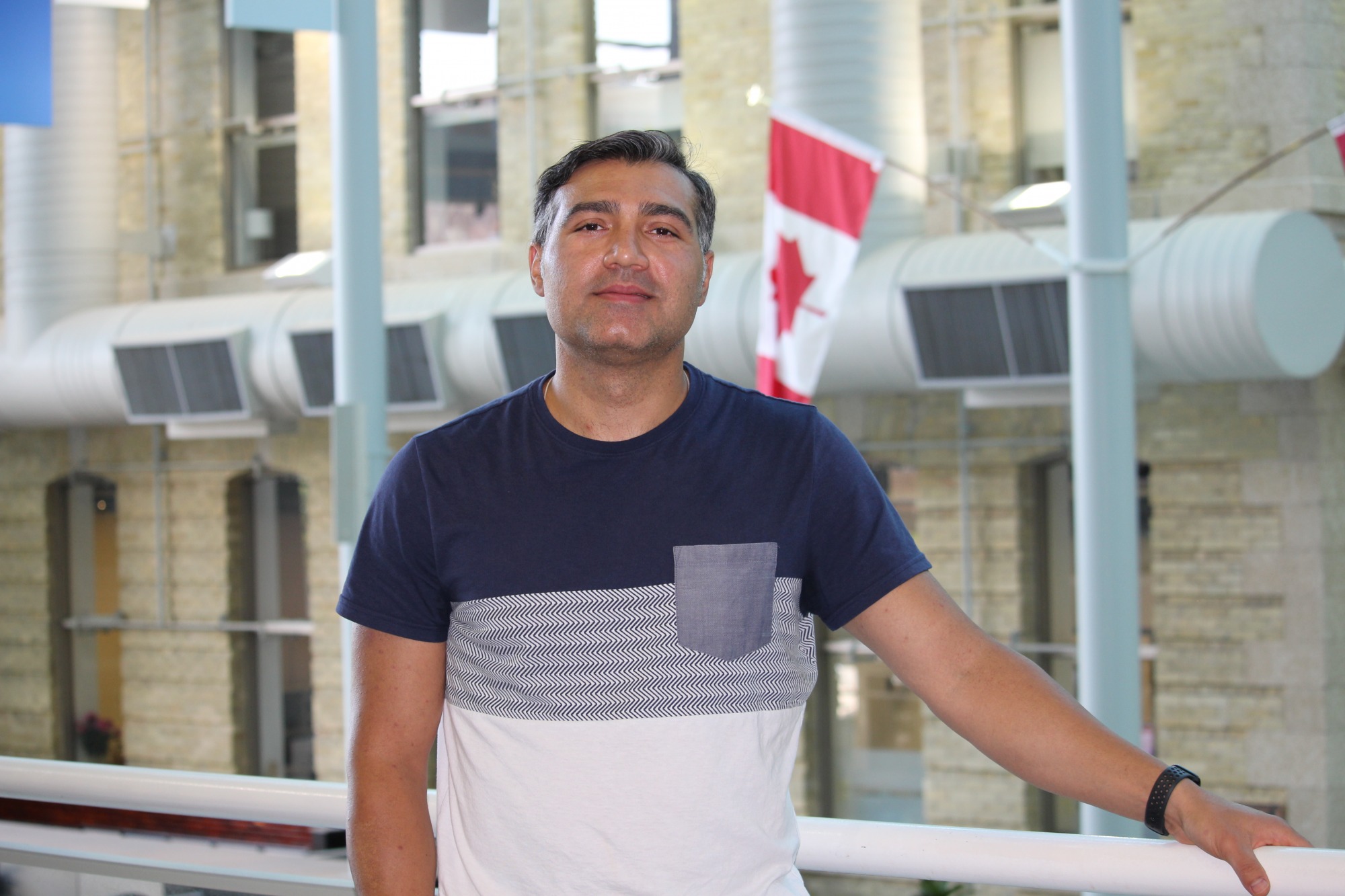October 24, 2022 —
Once cancer cells begin to metastasize and spread from their place of origin to other parts of the body, the life expectancy of patients drops drastically.
Javad Alizadeh, a graduate student in the Department of Human Anatomy and Cell Sciences at Max Rady College of Medicine, is trying to slow this process to curb cancer in one part of the body.
Alizadeh studies non-small cell lung cancer. It’s not the most aggressive form of lung cancer, but it is the most common, accounting for about 85 percent of all cases.
“We know how to treat this type of cancer when it’s in the lungs,” says the scientist. “As it spreads, it becomes much more difficult to treat. After metastasis, the survival rate for this type of cancer is 5 to 10 percent. It is the leading cause of death in lung cancer patients.
“If we can slow or reduce the spread of cancer cells from the primary tumor to other organs, we can improve a patient’s prognosis.”
To describe the challenge of this work, Alizadeh says, imagine putting sugar in a salt shaker. It becomes more difficult to find the grains of sugar when they mix with the salt. Similarly, cancer cells that spread from the lungs to other parts of the body become more difficult to target and treat.
Alizadeh holds a prestigious Vanier Canada Graduate Scholarship from the Canadian Institutes of Health Research and is an intern at the Children’s Hospital Research Institute of Manitoba. He was awarded a Dean of Graduate Studies Student Achievement Prize for 2021-2022.
Using both cultured cells and a mouse model of non-small cell lung cancer, Alizadeh is investigating how autophagy (the “recycling” of old and damaged parts within cells) is involved in lung cancer’s escape to other organs.
“We believe that manipulating this recycling process in cells can slow and potentially prevent metastasis of lung cancer cells,” he says.
After completing his bachelor’s degree in medical laboratory science and his master’s degree in medical biotechnology from Tehran University of Medical Sciences in his home country, Iran, Alizadeh wanted to pursue cancer research.
While working at the leading cancer research institute in Iran, he met at a conference with UM Associate Professor Dr. Saeid Ghavami in conversation. The result was that Ghavami offered Alizadeh a research assistant fellowship position at UM in 2015 and became his supervisor.
Alizadeh was interested in science from a young age, but also has a personal connection to his field of research.
“In high school I really liked chemistry and especially biology. It was so interesting to learn how our cells and our bodies work,” he says. “At university, I became more interested in cancer research. I think one of the most important things that put me on this path was my father dying of cancer.”
This experience also gave him an understanding of what patients and their families go through when they come to CancerCare Manitoba for treatment.
“I go to school here every morning. I see either cancer patients or their family members taking them to chemotherapy. I wish I could talk to them and tell them a bit more about what we’re doing and how the research will benefit them,” he says.
His research is the first step towards a different path to treating non-small cell lung cancer, which he acknowledges will likely take time.
“I hope that the results of my research will be the start of further research projects, because there is still a long way to go. So we need collaboration with all other researchers in this field to build on that,” he says.
#Targeting #spread #lung #cancer


Leave a Comment